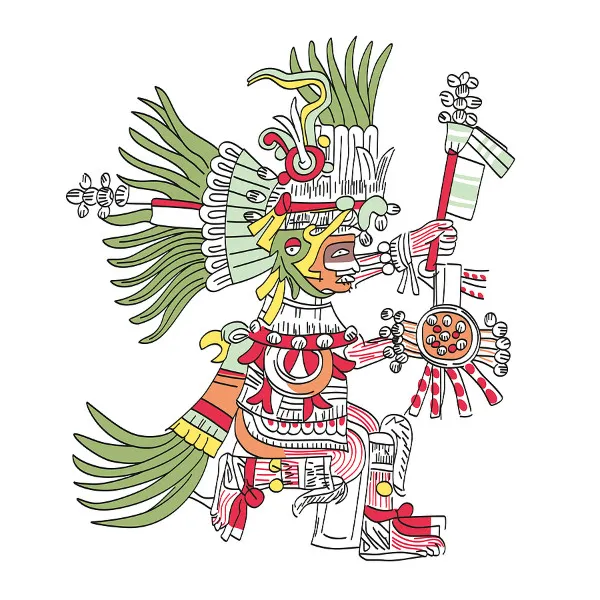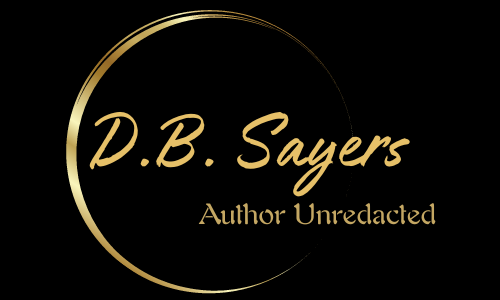One Man's Take on the Human Condition
But first, a call-out to a fellow author…a while ago, I ran across a post on Medium. I found it thought-provoking enough to read twice and it got a lot of comments, so I guess I wasn’t the only one. Written by Maud Newton, it was entitled “What Did the Forbidden Tree Want?
Like Maude, I cut my teeth on the Judeo-Christian traditions, later discarding them in favor of a spirituality more in tune with my world view. At the heart of Maude’s post, for me at least, was the following line:
“I concluded (as I wrote on my blog many years ago) that God excoriated Eve more roundly and punished her more severely than Adam not because she was more wicked, but because she represented an actual threat.”

Well, so goes the myth. Eve and the snake were both cursed. One can’t help wondering how Adam’s deflection got past an omniscient, omnipotent God. And therein lies the deeper truth beneath the surface of Maud’s post. God wasn’t excoriating anyone. The author of the myth was. I don’t think of myself as an iconoclast, but I believe that we should treat all “icons” as the man-made artifacts they are.
They Tyranny of Myth
In freshman anthropology we learned that culture is “shared, learned behavior.” And much of that learned behavior is embedded in symbols. Symbols inextricably woven into our common experiences, and laden with meaning displaced from its original context by the passage of time.
The Eden expulsion tale in Genesis is illustrative. Buried deep in our symbolic software, we often miss the degree to which myths mediate our decisions. The not-so-subtle misogyny of the Eden expulsion myth is embedded into what we like to think of as modern, enlightened society. And as Maud notes, it’s the perfect philosophical underpinning of a patriarchal society.
Or consider human sacrifice in the Aztec Empire. Cortés troops must have scratched their heads over Aztec culture. Their magnificent cities and evidence of (for the time) advanced scientific knowledge must have seemed at odds with their mythic devotion to human sacrifice.

Barbaric, it must have seemed, absent context. Surely, the Aztecs couldn’t have believed the myth. That the sun god Huitzilopochtli, waged a constant war with darkness — and if darkness won, it would be (literally) the end of the world and all life?
Did the actual practitioners of human sacrifice buy the myth? I doubt it. More likely, they recognized the practice’s intimidation value. Myth — underpinned by human action — was a means of preserving hegemony. Until the arrival of Cortés with firearms and horses.
Myth and Social Cohesion
Originally, myths seem likely to have been spun from our need to explain the inexplicable. One could say that Myth either as an oral tradition or as art was a precursor to what would become science and philosophy, grounded in our desire to know. But at the same time, might we be well advised to recognize that our affection for myth comes with a dark side?
Who knows when myth began? Perhaps it was while we were hunter-gatherers, vulnerable to predators, unexplained natural disasters, and epidemic. It’s not difficult to imagine that we needed explanations for our mortality. Who knows when the first shaman figured out how to weaponize our fears and insecurities?
Harnessing the power of myth, he (or she) linked the soothing capacity of mythic explanation with ritual commemoration as an instrument of social control. A talisman, if you will, to ward off fear and our vulnerability.
Myth and Power
But in our “civilized” form, have we not become the quintessential paradox? Navigating life with the mindset of vulnerability, we nevertheless also possess the characteristics — and often the mindset — of apex predators. This makes us susceptible to mythic manipulation. And the purveyors of myth are scarily adept at it.
Whether the myth to which we refer is Original Sin, American Exceptionalism, or Q-Anon, myth endures because it serves a deeper purpose. Myth comes preloaded with a soothing explanation and accepted symbolism upon which we are supposed to focus. The salutary “lessons” we often accept tacitly, without argument. They slip past our critical faculties, as the nameless shaman we alluded to earlier understood well. Most of us recognize this in others — less commonly, I suspect, in ourselves.
As society has grown more complex, the custodians of myth have become organizations, laminating our shared culture, with myths they consciously craft in service of their propaganda strategy. Leveraging their credibility (earned or stolen), they exploit our existing mythic prejudices, while fashioning new myths suited to their purpose.
Anyone expecting a screed demonizing social controls is sure to be disappointed by this post. I’m neither a knee-jerk iconoclast nor an anarchist. Social cohesion (and control) are necessary in mature, complex societies. Still, as Professor Mastrovik admonishes Clay Conover in West of Tomorrow: “…only a fool confuses the necessary with the good.”
Most myths, I submit, eventually outlive their value. But myth and the ritual habits celebrating them often die hard, because most myths contain a particle of truth, philosophical if not actual. They offer a payoff to believers, providing them with a measure of comfort or courage.

Future Shock Redux
In times of stability, when security and certainty are comparatively high, we are less reliant on myth for comfort. But in times of tectonic change, myth often assumes out-of-proportion prominence in our lives.
As familiar frames of reference, we cling to them as talismans against the caprice of life. Part of our tribal “wisdom,” we are tempted to view myth as truth inviolate, rather than a human construct with finite efficacy.
But are we always well-served by our tendency to cling to the familiar? Surely, at this stage we should be capable of filtering new myths (memes, in the current vernacular) against what our common sense and education tells us is true. Is it not purposeful to periodically examine our myths for accuracy and relevance — rather than defaulting to them without conscious thought?
Emancipation from Myth?
Do not all human constructs derive their relevance from context — their place in time and space? The same is true of myth. And whether we’re referring to religious, economic, political, or philosophical constructs, the apparent conflicts between opposing perspectives is generally driven by the motivations of the authors of those myths in the first place.
Often, the conflict is more apparent than factual. They’re in conflict not because they must be, but because we’ve been convinced by entities monetizing divisiveness for purposes of their own. I invite everyone’s critical attention to the myths you drag around with you through life.
While they may be perfectly relevant to us, they may be worse than superfluous to someone else. So can we give the culture/value wars a rest? Our myths are showing, and it’s not a good look.

This is so true. Love your take on this.
Thanks, Serena. Thanks for stopping by and taking the time to read my post.
Yeah! What you said. I can’t believe how much BS we drag around behind us in life.
Thanks for stopping by and reading, Lenny. And I couldn’t agree with you more. We really do buy into a lot of unhelpful deadwood that we call tradition. Not bad in and of itself, but…we need to think through the traditions we keep around. Thanks for your comment!
A couple years ago, I had a conversation with my mom who’s a serious bible thumper. We haven’s spoken a civil word to each other since and the conversation went a lot like your article. Needless to say, I agree. And I think you said it really well. Thanks for sharing.
Hi Chelsey. I understand and I’m sorry. It happens…hopefully, she’ll come around.
Best wishes, Dirk
I think that nothing illustrates just how stupid we can be, sometimes, than this. What you say applies to all the BS we’re fed by people who have vested interest in us buying what they’re selling. We should all just stop!
Hey Paulie: I think most of us need explanations for things we don’t understand. And I agree…it often leads to be incredibly silly sometimes. Unfortunately, sometimes in ways that are inherently destructive. Thanks for taking the time to read and comment.
Dirk
In my opinion you are not right. I am assured. Let’s discuss.
Great. Tell me why.
Awsome info and straight to the point. I don’t know if this is truly the best place to ask but do you folks have any thoughts on where to
employ some professional writers? Thank you 🙂 Escape room
Thanks, Bernie. And yes, I know where to find professional writers. Depending on the subject matter, I may be able to steer you in the right direction. Go to my “Chat with Dirk” page if you’re truly interested.
Dirk